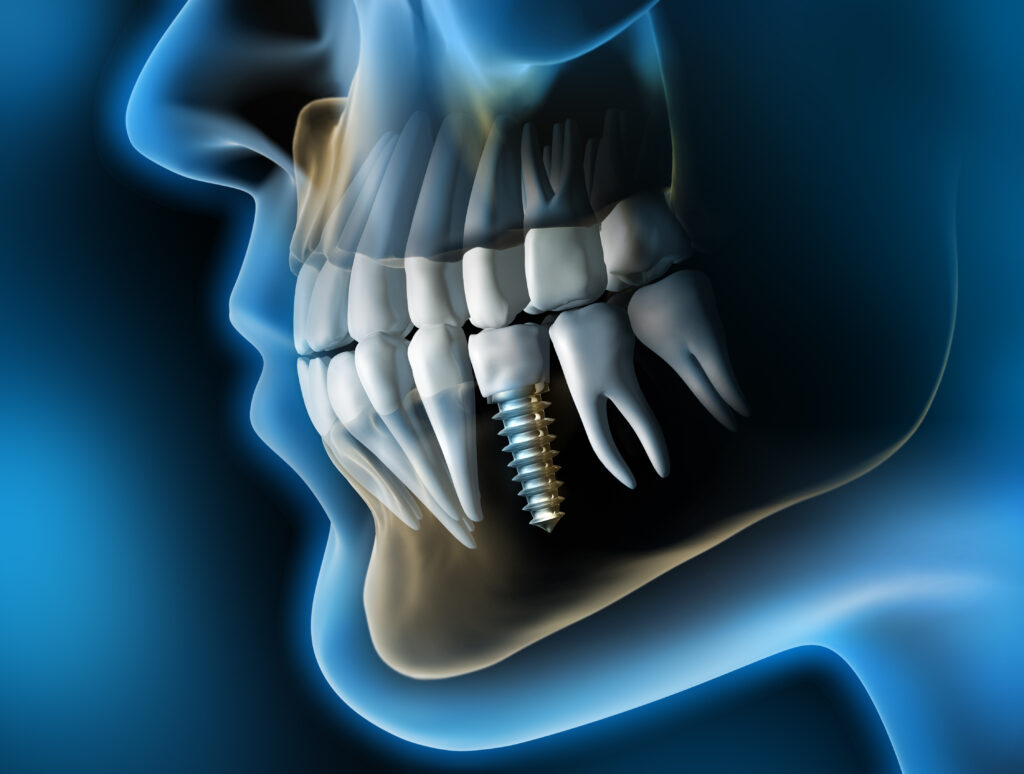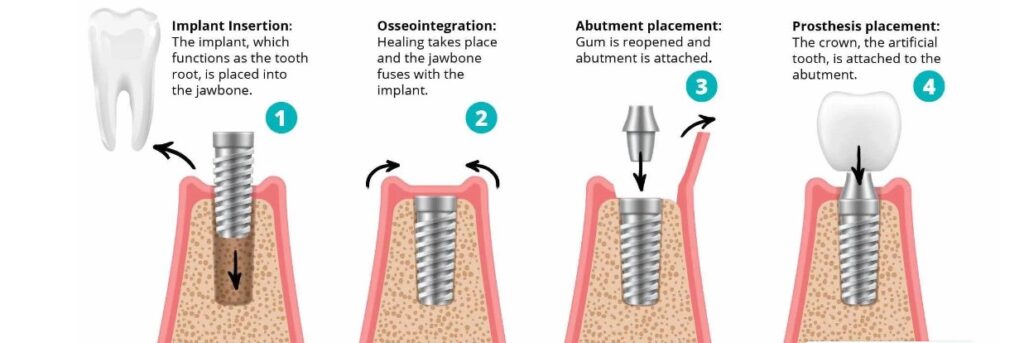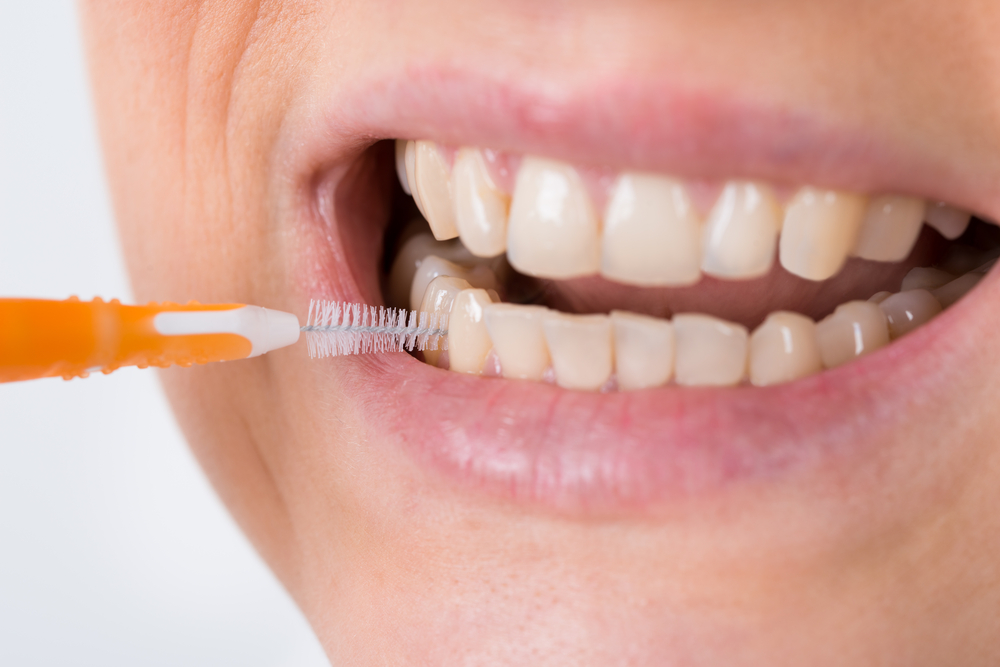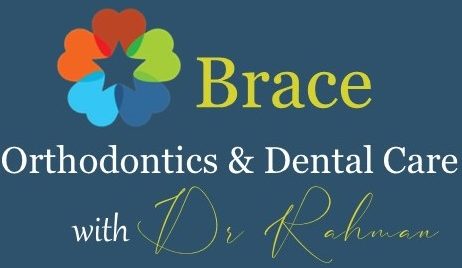Best Dental Implant in Dhaka
Dental Implant is a very popular treatment option for replacing missing tooth. Once upon, 10 to 15 yrs ago dental implant was not available in Bangladesh though its become familiar in western world long ago. At that time removable false teeth and fixed bridge prosthesis were the options to offer to patient. False teeth is very difficult to tolerate inside the mouth for the patient and for fixed bridge prosthesis adjacent teeth need to be compromised to get support.
Dental Implant, why did it become so much popular? Yes dental implant is no. 1 option to replace missing teeth because of high success rate and it can be fix inside the bone without taking any support from next teeth. Moreover you can not only replace single tooth but also multiple teeth and full mouth rehabilitation also possible.
What is Dental Implant?

Dental Implants is replacing missing teeth permanently which serve as a great alternative to dentures or dental bridges. They are designed to closely resemble your natural tooth, providing a comfortable feel compared to other teeth replacement methods.
Dental Implant Structure

1.Fixture (Implant)
The implant fixture is shaped like a screw and is composed of either medical-grade titanium or ceramic. This is surgically placed into your jaw bone to replace the root of your natural teeth.
2. Abutment (Connector)
The implant abutment (connector) is a small nugget that attaches to the implant fixture. It helps to connect and support the implant prosthesis.
3. Prosthesis (Crown)
And finally, the implant prosthesis forms the most superficial part of the implant that closely resembles the crown of your natural tooth. It can come in various forms such as a:
- Crown (replaces a single tooth)
- Bridge (replaces a few teeth)
- Denture (replaces several teeth)
.
3D Guided Dental Implant Procedure : 4 Main Stage
The complete process of placing a dental implant and achieving full recovery may span up to 6 months. This process involves four main steps: Makin a 3D Guide for inserting the implant, allowing for osseointegration, placing the abutment, and finally, fitting the prosthesis.
The 4 steps of the procedure not carried out in single dental visit/surgery but over the period of several months. This is help in healing and allow the implant to fuse properly with its surrounding jaw bone. This is called as Osseointegration (seen here in step 2) and is critical to the success of any dental implant.
After healing is complete, and the integration is successful, the abutment and the prosthesis can be attached to the implant fixture (steps 3 & 4). You will now have teeth that feel like your own, allowing you to enjoy eating, drinking and speaking like you used to. Now, you won’t have to hide your smile anymore!
Read More About Guided Dental Implant

Benefits of Dental Implant
In Bangladesh, dental implants are widely regarded as a successful and practical option for replacing lost teeth. They offer a long-term solution with few drawbacks, ultimately enhancing your quality of life and self-esteem.
Dental implants offer a secure and stable solution, unlike dentures. They do not rely on neighboring teeth for support, unlike bridges. Choosing dental implants over other methods for replacing missing teeth comes with various additional benefits like:

Feels Like Natural Teeth
Implants are fix firmly within your jaw bone, providing a strong foundation for the artificial prosthesis (crown of tooth). This makes it a sturdy teeth replacement option, allowing you to carry out your daily activities, like eating and talking easily.
In Compar to removable options, like dentures or dental bridges, which can slip in and out of their position, implants are not removable and are secure.
Moreover, implants do not need to be removed and cleaned in the way dentures and bridges need to be.

High Success Rate & Potential to Last a Lifetime
Studies shows dental implants have a high success rate, lasting for 10+ years on average.
Titanium metal implants last for lifetime and can outlive their artificial tooth crown, which should to be replaced every 25 years.
The lifespan of your dental implants affected by several factors including how well you care for them, your lifestyle and habits, the density of your jawbone and the position of the tooth along the jaw arch.
For example, having low jawbone density and habits such as smoking reduces the success rate of implant surgery.

Not Supported By Surrounding Teeth
The fixtures of implants (screws), surgically placed inside your jawbone, which support and hold the artificial tooth crown.
This is not like in a tooth-supported bridge or denture, where the surrounding teeth function as the supportive pillar, keeping the artificial teeth in place. Adjacent teeth are therefore not overstrained by these structures, hence avoiding teeth cracking or being worn down over time.

Avoids Problems Associated with Missing Teeth & Prevents Jawbone Loss
Having missing teeth is not only a cosmetic problem. It is also causes teeth to shift and for over-crowding and gaps to occur, hindering your ability to floss and brush. This may lead to tooth cavities and decay occurring down the line. Gaps between teeth also allow a cavity for food to be trapped and for plaque and bacteria to accumulate, which could eventually lead to gum recession.
Moreover, when a tooth is absent, it causes the jawbone and tissues surrounding it to atrophy and decrease in volume. This could affect the bone structure of one’s face and change one facial appearance, making one look aged. Implants prevent bone loss and gum recession by stimulating the growth and development of the jawbone. Once the implant is placed, it functions like a natural tooth root, allowing the jawbone to grow well.
This is the way, your facial structure is maintained, preventing premature ageing, and resulting in maintaining a youthful and vibrant facial appearance.

Enhances Your Speech & Eating Abilities
Dental implants can feel almost exactly like your natural teeth, allowing you to eat, drink, and talk as you normally would.
With dentures, because the tooth root is absent, over time the jawbone can degenerate and shrink. This would cause the dentures to not fit as well, slipping in and out of their position. As the jawbone deteriorates further and over time, you would have to change your set several times over the span of a few years.
Teeth are an essential part of speech sound development. When there are gaps in your teeth, this causes lisps or whistling sounds. Wearing dentures also requires getting used to; initial problems include the collection of excessive saliva or the inability to properly enunciate certain sounds.
Types of Dental Implant
Single Dental Implant
Multiple Dental Implant
All-on-4 Dental Implant
Do I Need Dental Implant?
If you have missing teeth, or if your existing dentures or dental bridge is loose and uncomfortable, dental implants may be the right solution for you.
You may need dental implants if:
- You have any missing, failing, or unstable teeth. Missing teeth can cause some severe dental problems down the line, including gum recession and changes in one’s facial structure;
- You have missing teeth which affect your ability to chew. This not solely prevents you from enjoying the food you love but also could result in indigestion or an inability to break food down small enough to chew;
- You have missing teeth which affect your ability to pronounce words, and you hence have speech issues. With a hindered ability to express yourself, you might feel a sense of isolation or that you’re not as confident speaking in the same way you once were;
- You are dissatisfied with your smile, which in turn has a few psychosocial consequences, such as a lowered self-esteem, fear of social interaction, or reduced quality of life;
- You have an uncomfortable, dysfunctional or destructive bite. This could result in chipped, broken or worn-down teeth;
- You are dissatisfied with your current dentures.

How Should You Maintain Your Dental Implant?
The success of dental implants hinges on a patient’s ability to care for them well. From the insertion of the implant fixture to having the crown fit, patients should adopt soft diets where necessary and avoid vices like smoking.
Implants have the best long-term success with patients who:
- Consistently maintain stellar oral hygiene and dental care;
- Regularly attend their dental check-ups;
- Do not place excessive biting forces on the implant (extreme biting forces could result from tooth grinding habits, having a dysfunctional bite, etc.);
- Do not smoke.

